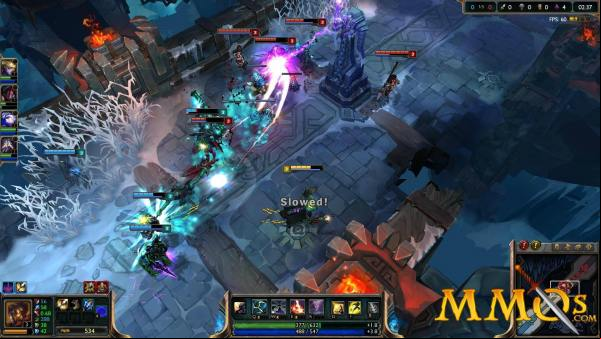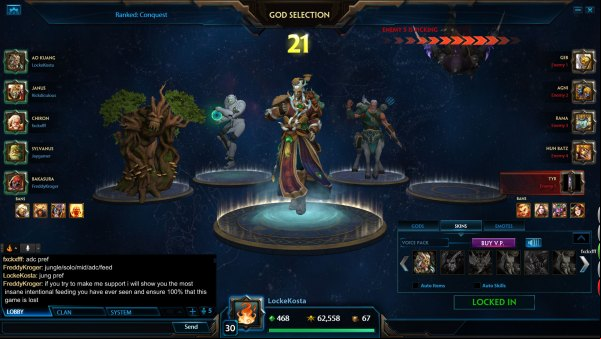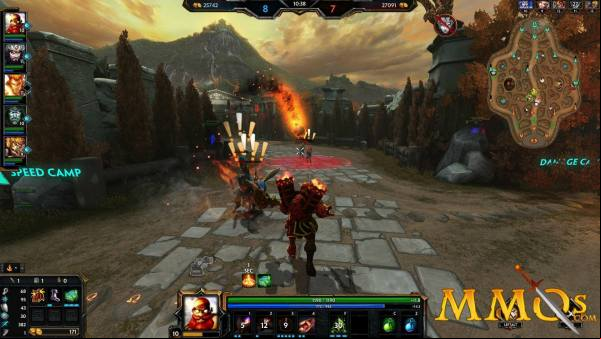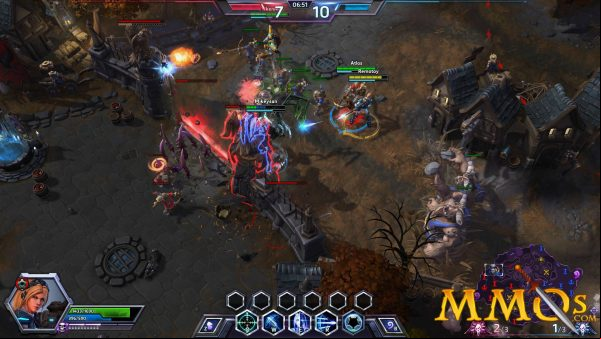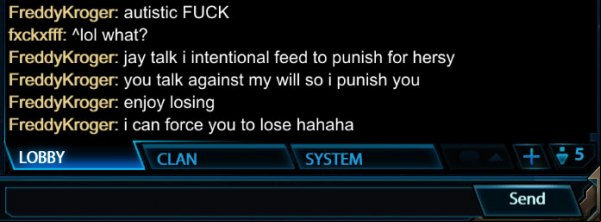Elo Rating Systems Are Terrible For MOBAs

Competitive gaming is at an all-time high in popularity and continues to grow at a rapid pace alongside Twitch and games media in general. Each year gaming tournament prize pools double, more full-time professional gamers find a way to make playing video games their primary career, and, despite all the naysayers’ predictions, games media continues to see exponential monetary growth on a yearly basis.
MOBAs, multiplayer online battle arenas, are at the forefront of competitive gaming’s growth. Games like SMITE are constantly pushing competitive gaming forward with massive tournament prize pools and worldwide leagues that facilitate professional gaming careers on unprecedented scales. Yet these games continue to moronically use Elo, or Elo-like, rating systems to rank their player bases.
The Problem with Elo
The Elo rating system was originally invented by Arpad Elo as an improved rating system for chess players. Since its inception in 1939 the system has been used in a variety of sports and gaming environments, from Major League Baseball to competitive programming (yes, apparently that’s a thing).
It’s been dumped into video games for years now, from Halo—which has bounced between an Elo and True Skill rating system—to the popular MOBAs of today. However, while it’s easy to think that a system good enough for professional sports should be good enough for online gaming, it doesn’t translate well to the online multiplayer environment.
For starters, the Elo system was created to gauge player skill on a 1v1 basis. This is pretty simple to accomplish because the players have full control over their destiny. If Player A, rated at 1000 Elo, beats Player B, rated at 1400, there should be a substantial swing in both player’s ratings because Player B was clearly supposed to have no problems beating Player A. When there isn’t any random element involved in the game, like chess, this makes complete sense. Player B is expected to consistently play at a 1400 rating level. Seeing as how he lost to someone with only 1000 Elo, he’s clearly no longer playing at a 1400 rating.
Even the most skill-based online multiplayer game has a randomized element that traditional sports and games don’t have to deal with— an internet connection. At any point in time a player could wind up disconnected from the game through no fault of their own. A drink driver could run into a telephone pole and knock out a block’s electricity for hours while someone’s in the middle of a game. (Yes, this has seriously happened to me before.) Should that player’s impromptu teammates be punished as a result of such unforeseen circumstances?
Most of you are reasonable adults who will agree that they shouldn’t, but Elo systems don’t for internet connection discrepancies at all. Should someone leave in the middle of a 5v5 match-up, the remaining 4 players will lose just as much Elo as if the game was 5v5 from beginning to end. Even if they mount a miraculous 4v5 win, they will only receive an Elo boost as if their 5th player had never left the game at all.
The primary factor behind Elo manipulation is your win-loss record, and that’s unacceptable for online multiplayer games that are plagued by connection issues, internet trolls, and general ignorant dumbassery that falls outside the player’s realm of control.
“Why Can’t You Just Enjoy the Game and Not Worry About Elo?”
Ranking is the entire point of competitive multiplayer games. Players are encouraged to test their mettle against each other to prove who’s best among their friends, family, and the entire world. The mere existence of MOBAs and the explosive growth of the eSports scene proves how hungry people are for serious competitive video games.
One of the most enticing aspects of eSports is the idea that anyone can sit down, practice a video game, and potentially get good enough to play at the highest level of that game’s competitive scene. It’s why games like LoL and SMITE have a “Challenger Series,” that give sponsorless, amateur teams a shot at the big leagues.
The recent SMITE Combine is a perfect example of how the broken Elo system is failing the players. The Combine was a 2 weekend event that gave SMITE players a chance to put their skills on display for the pros to see and potentially get picked up to play with a professional SMITE team. Of course, SMITE couldn’t allow every 13-year-old and his mom to tryout, so they put requirements on Combine issions. In order to play in the SMITE Combineyou had to be ranked at Platinum V or higher in Leagues— Conquest—which is the ranked version of SMITE’s primary game mode.
Overall, the Combine turned out to be a resounding success and quite a few players were picked up to play competitive SMITE professionally as a result of the event. However, the Elo requirement meant any players stuck in Elo Hell weren’t even able to have an opportunity at being scouted for a professional team. In practice, Elo essentially eliminates the entire notion of equal opportunity and possibility that the “Challenger Series” and eSports in general is predicated upon. Players who get stuck in Elo Hell, due to a few unlucky matchmaking pairings, wind up not having a shot at the big leagues despite their actual ability.
What’s Elo Hell?
Elo Hell is a term that didn’t exist until the Elo system started being used for online multiplayer games. Simply put, Elo Hell is when your Elo rating gets low enough to the point where you’re constantly inundated with bad players who keep your Elo rating down— e.g. when you’re paired with a leaver or feeder that single-handly causes your team to lose or have to play with a severe handicap every other game.
Whenever you first start playing ranked multiplayer you’re put through a series of qualifying games that determine your starting Elo. Good players get caught in Elo Hell when they run into leavers and feeders that cause them to start with a low Elo rating. Lose enough games, which usually entails losing 4/10 qualifiers or more, and you’ll likely find yourself constantly paired with players that don’t take the game seriously and cost you Elo, which ruins your overall gaming experience, let alone any professional aspirations you may have.
Nobody likes wasting 30 mins on a game they were doomed to lose through no fault of their own before it ever began. Having your rank take a beating too is throwing salt on the wound.
“My (insert multiplayer game here) doesn’t use Elo!”
They may not call it Elo but it’s probably just a tweaked form of Elo. Any MOBA ranking system that takes wins and losses into ranking consideration at all is fundamentally flawed. Whether or not you win or lose a game is too outside your realm of control to accurately depict your overall skill level in a team-based online multiplayer game.
These games need brand new rating systems of their own that take player statistics into , and not just kills, deaths, and assists. Wards placed, structure damage, damage mitigated, kills plus assists (aka team kill involvement), player damage, and various other relevant game statistics should be utilized to create a rating system that takes into how well someone played alongside their teammates compared to their other teammates and the opposing team, because that’s the true measure of a competitive MOBA player.
The first MOBA to spend the time and resources to create such a system will be rewarded with an influx of players who are tired of dealing with Elo Hell, which would no doubt pay for the man-hours spent devising a new MOBA ratings system. Sure, it’ll never be perfect and will require constant tweaking much like the rating systems we have now, but it’ll be better for MOBAs and the eSports scene in general.
The eSports community has an opportunity to become the first professional gaming/sports platform where Average Joes can have a real shot at professional gaming stardom that isn’t withheld behind a massive paywall or lottery-style luck of the draw. It’s this ideal that’s largely pushing eSports popularity forward, causing millions to tune-in to professional gaming tournaments to learn from the pros and adjust their playstyle accordingly.
MOBAs have the option to give the fans what they want and line their own wallets even further by doing away with Elo and devising a ratings system that solely takes player skill and performance into consideration. Not doing so is just laziness on the part of the developers, and it’ll wind up stunting eSports growth in the
